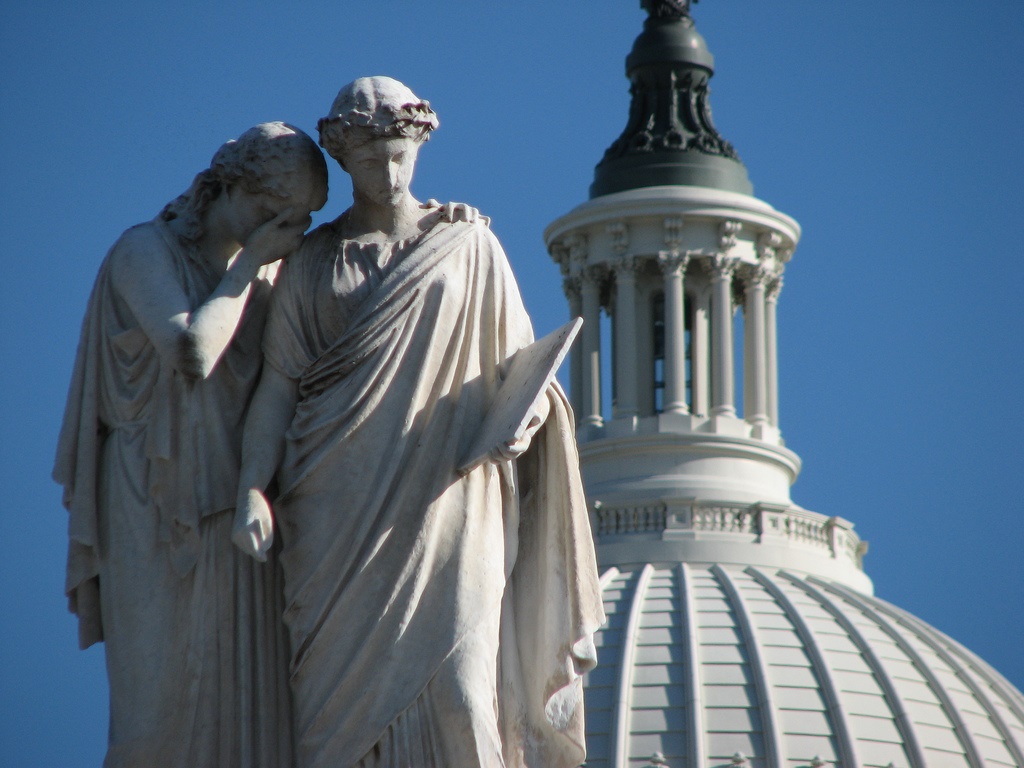The Peninsula
Crisis Averted – For Now

By Phil Eskeland
This was a very interesting week in Washington – three seminal events happened (no, the visit of Prince Harry doesn’t count) that were linked in some fashion to the surprise resignation of House Speaker John Boehner announced last month.
First, on October 26th, the House of Representatives reauthorized a little known agency known as the Export-Import Bank of the United States (Ex-Im), whose authority lapsed last July, through the skillful employment of a discharge petition, a rarely utilized legislative procedure. Even though the relevant committee and House leadership bottled up the normal legislative process to keep Ex-Im shuttered for new business, an overwhelming bipartisan majority of the House – including a majority of Republicans – overcame those obstacles to reauthorize and reform the official export credit agency of the U.S. government. The supporters of Ex-Im Bank needed to act quickly during the gap between when Speaker Boehner announced his resignation (September 25th) and when he aimed to leave Congress (October 30th) in order to take advantage of his earlier promise to have an open debate on Ex-Im. While the legislation still has to overcome some more legislative hurdles, a similar bipartisan vote in the Senate on Ex-Im last July bodes well for the re-opening of this bank in the near future.
Second, during the middle of Congress, the House elected a new Speaker. After the unanticipated announcement of the mid-term resignation of Speaker Boehner, it was expected that his second-in-command – House Majority Leader Kevin McCarthy (CA-23rd) – would easily be elected by his fellow colleagues to become second in line to the presidency. However, just as the Republican Conference began to meet to discuss candidates to replace Speaker Boehner, Majority Leader McCarthy shocked his fellow colleagues by taking himself out of the running. For several days, it was not clear who would be the candidate to replace Speaker Boehner. However, after much cajoling, Ways and Means Committee Chairman Paul Ryan (WI-1st), who was not part of the House GOP leadership, was persuaded to run for Speaker. As a result, on October 29th, Representative Ryan was elected Speaker with the support of 236 of his colleagues. Speaker Ryan is well known as an expert on the details of U.S. federal budget based on his previous tenure as Chairman of the House Budget Committee. He is also passionate about tearing down barriers to trade as evidenced by his personal leadership in convincing reluctant members of his own party to support Trade Promotion Authority (TPA) for President Obama in order to complete the Trans Pacific Partnership (TPP) talks.
Finally, a possible threat to the U.S. and the global economy was averted during the early morning hours of October 30th as the Senate adopted the House-passed budget package that raised the debt ceiling and compromised on the 2011 sequester, fulfilling another pledge of Speaker Boehner to “clean the barn” prior to the ascension of his replacement. Earlier this month, U.S. Treasury Secretary Jacob Lew wrote to Congress warning that the U.S. public debt ceiling would be breached earlier than expected on November 5, 2015. Behind the scenes, the bipartisan Congressional leadership and the Obama Administration worked to craft a budget package that sufficiently raised the borrowing authority of the U.S. government to last until March 2017 – past the election season when there will be a new occupant in the White House. In addition, the budget agreement adjusts the budgetary sequester upward, freeing up more funding for defense and non-defense discretionary programs while “paying for” that higher spending by reforming some entitlement or mandatory spending programs. This deal will eliminate one major issue that resulted in the President’s veto of the defense authorization bill earlier this month. In addition, economists at J.P. Morgan and Goldman Sachs estimate that this budget deal should boost U.S. economic growth between 0.1 and 0.2 percentage points in 2016 and 2017 through higher federal outlays and removing uncertainty in the economy with respect to the debt ceiling.
However, there is still one item remaining to be completed before the end of this year – passing the appropriations bills to fund the programs and operations of the entire U.S. government. While this budget deal provides more flexibility to the Congressional appropriators to craft a spending bill that can pass the House and Senate, this massive task has to be accomplished before December 11th when the current “continuing resolution” expires. Otherwise, the U.S. government would face another government shutdown that would send a confusing message to our international partners and adversaries that the U.S. political system is dysfunctional.
The week of October 26th was an exceptional time period that was a result of a unique confluence of three events because of the unexpected decision of House Speaker John Boehner to resign his position. However, new House Speaker Paul Ryan will have a “baptism by fire” in the coming days and weeks as he deals with the appropriations bills to keep the U.S. government open past December.
Phil Eskeland is Executive Director for Operations and Policy at the Korea Economic Institute of America. The views expressed here are his own.
Photo from Jonathan Colman’s photostream on flickr Creative Commons.
